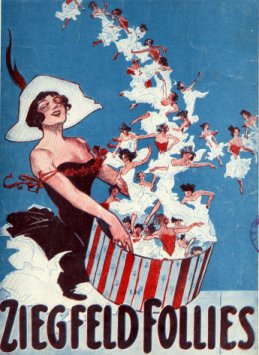
The Ziegfeld Follies were a series of elaborate theatrical revue productions on Broadway in New York City from 1907 to 1931, with renewals in 1934, 1936, 1943, and 1957. They became a radio program in 1932 and 1936 as The Ziegfeld Follies of the Air.

Sigmund Romberg was a Hungarian-born American composer. He is best known for his musicals and operettas, particularly The Student Prince (1924), The Desert Song (1926) and The New Moon (1928).

Fania Borach, known professionally as Fanny Brice or Fannie Brice, was an American comedian, illustrated song model, singer, and actress who made many stage, radio, and film appearances. She is known as the creator and star of the top-rated radio comedy series The Baby Snooks Show.

The Winter Garden Theatre is a Broadway theatre at 1634 Broadway in the Midtown Manhattan neighborhood of New York City. Originally designed by architect William Albert Swasey, it opened in 1911. The Winter Garden's current design dates to 1922, when it was completely remodeled by Herbert J. Krapp. Due to the size of its auditorium, stage, and backstage facilities, it is favored for large musical productions. It has 1,600 seats and is operated by The Shubert Organization. The auditorium interior is a New York City landmark.
Harry Akst was an American songwriter, who started out his career as a pianist in vaudeville accompanying singers such as Nora Bayes, Frank Fay and Al Jolson.
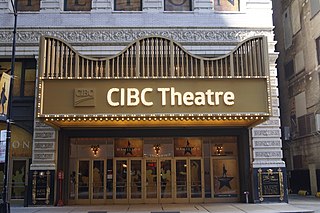
CIBC Theatre is a performing arts theater located at 18 West Monroe Street in the Loop area of downtown Chicago. It is operated by Broadway In Chicago, part of the Nederlander Organization. Opened in 1906 as the Majestic Theatre, it currently seats 1,800 and for many years has presented Broadway shows. In its early years, the theater presented vaudeville celebrity acts.
Chip Deffaa is an American author, playwright, screenwriter, jazz historian, singer, songwriter, director, and producer of plays and recordings. For 18 years, he wrote for the New York Post, covering jazz, cabaret, and theater. He has contributed to Jazz Times, The Mississippi Rag, Down Beat, Cabaret Scenes, England's Crescendo, and Entertainment Weekly. He's written nine books and 20 plays, and has produced more than 40 albums. As D.A. Bogdnov noted in a lengthy profile of Deffaa published in TheaterScene.net on December 5, 2022, Deffaa "has produced more recordings of George M. Cohan songs than anyone living, just as he's produced more recordings of Irving Berlin songs than anyone living. And having produced more than 40 albums in total now, Deffaa has surely recorded more members of New York's theater/cabaret community than anyone living." He was born in New Rochelle, New York. Mentored by former vaudevillian Todd Fisher and studying at the American Academy of Dramatic Arts in his youth, Deffaa became hooked on show business while performing as a child actor. His interests evolved into writing. He wrote his first play and first song at age 17. He graduated from Princeton University. He freelanced for various publications before finding a longtime home at The New York Post, where editors V.A. Musetto, Matt Diebel, Steve Cuozzo, and Faye Penn gave him wide latitude to write about jazz, cabaret, classic pop, and theater.
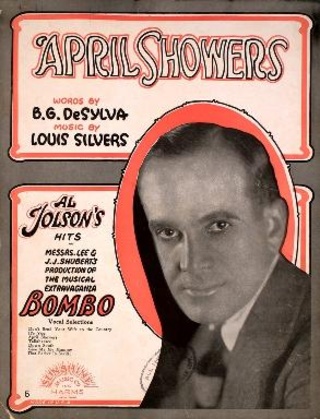
"April Showers" is a 1921 popular song composed by Louis Silvers with lyrics by B. G. De Sylva.
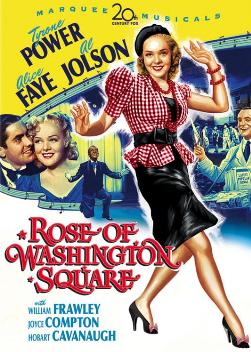
Rose of Washington Square is a 1939 American musical drama film, featuring the already well-known popular song with the same title. Set in 1920s New York City, the film focuses on singer Rose Sargent and her turbulent relationship with con artist Barton DeWitt Clinton, whose criminal activities threaten her professional success in the Ziegfeld Follies.

Bombo is a Broadway musical with a book and lyrics by Harold Atteridge and music by Sigmund Romberg.

Robinson Crusoe, Jr. is a musical with a book by Edgar Smith, lyrics by Harold Atteridge, and music by Sigmund Romberg and James Hanley.

Sinbad is a Broadway musical with a book and lyrics by Harold Atteridge and music by Sigmund Romberg, Al Jolson and others. Jolson plays a porter in old Bagdad where he meets a series of characters from the Arabian Nights, including Sinbad. He is transported to various exotic settings.
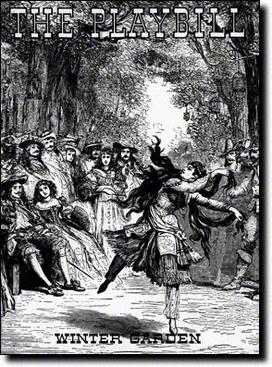
The Ziegfeld Follies of 1936 is a musical revue with lyrics by Ira Gershwin, music by Vernon Duke and sketches by Gershwin and David Freedman. The Ziegfeld Follies were a series of revues presented from 1907 through 1931, 1934, 1936, 1943, and 1957.

Grace La Rue was an American actress, singer, and vaudeville headliner.

The Passing Show was a musical revue in three acts, billed as a "topical extravaganza", with a book and lyrics by Sydney Rosenfeld and music by Ludwig Engländer and various other composers. It featured spoofs of theatrical productions of the past season. The show was presented in 1894 by George Lederer at the Casino Theatre. It was one of the first musical revues on Broadway and led the fashion for such productions. The Casino Theatre produced a revue each summer thereafter for several seasons.
Harold Richard Atteridge was an American composer, librettist and lyricist primarily for musicals and revues. He wrote the book and lyrics for over 20 musicals and revues for the Shubert family, including several iterations of The Passing Show.

Willie Howard and Eugene Howard, billed as the Howard Brothers, were Silesian-born American vaudeville performers of the first half of the 20th century. They were two of the earliest openly Jewish performers on the American stage.
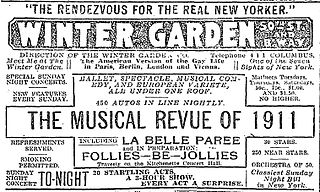
La Belle Paree was a musical revue that launched the legitimate theatre career of Al Jolson. The book was by Edgar Smith, music by Jerome Kern and Frank Tours and lyrics by Edward Madden. Billee Taylor provided additional music and lyrics, and M. E. Rourke and Frederick Day provided additional lyrics. It premiered on Broadway in 1911. The musical is set in Paris, France.

Stella Mayhew was an American actress and vaudeville performer.

Blanche L. Merrill was a songwriter specializing in tailoring her characterizations to specific performers. She is best known for the songs she wrote for Fanny Brice.

















